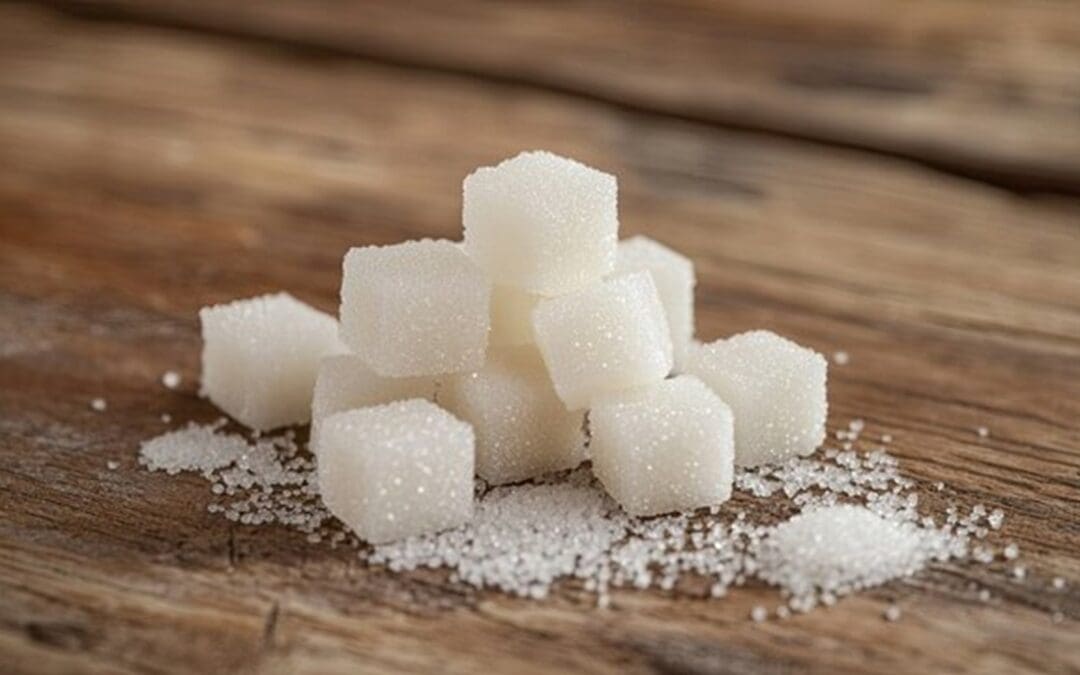Glucose and galactose are two distinct simple sugars with unique chemical properties. This guide will break down the key differences between glucose and galactose, explain their roles in your body, and explore how they influence conditions like diabetes and lactose intolerance. We’ll also cover simple strategies to manage these sugars for better health. By understanding how they work, you can make smarter choices to optimise your health.
What is the Difference?
Glucose is a well-established primary energy source for the body, rapidly absorbed into the bloodstream. It is prevalent in various foods and serves as a critical component of complex carbohydrates, such as starch and glycogen.
Contrastingly, galactose is derived from dairy products and certain fruits and vegetables. Galactose tastes similar to glucose but is slightly less sweet. It is found within lactose (milk sugar).
Despite sharing the same chemical formula, glucose and galactose differ structurally, which leads to distinct metabolic roles. Glucose is directly utilised by the body for energy, while galactose must be converted into glucose to be metabolised.
Metabolic Functions
Glucose:
Glucose is vital for producing ATP (adenosine triphosphate), the energy that powers muscle movement, nerve signals, and various cell functions. In turn, our bodies can coordinate movements for activities like exercise. Insulin helps cells absorb glucose, while glucagon (a hormone from the pancreas that raises blood sugar) releases stored glucose from the liver when needed. The brain relies heavily on glucose for energy and to make essential molecules like fats, proteins, and DNA building blocks. Therefore, blood glucose levels are tightly regulated to ensure the body functions properly.
Galactose:
Galactose, while less commonly known, is also a source of energy and is processed by the body very differently than regular sugar. It essentially “pushes” the mitochondria (the cell’s powerhouses) to use fat and oxygen for energy, which is a significant metabolic shift.
Although galactose tastes similar to regular sugar and has the same calorie content, turning galactose into glucose requires much more energy. Because of this, sugar cells are less inclined to use galactose for fermentation, as the energy needed for conversion is almost as high as the energy released.
Galactose is an ideal sugar for those on a ketogenic diet and helps encourage fat-burning. Both approaches deplete glucose stores (glycogen) in the body, forcing the mitochondria to rely on oxidative metabolism for energy.
Galactose is also found in breast milk, which is a significant carbohydrate source for infants. During early development, galactose is vital for brain growth and neurological functions.
Impact on Diabetes
Glucose:
Glucose directly influences blood sugar levels. In diabetics, glucose level management is challenging due to impaired insulin production (Type 1 diabetes) or insulin resistance (Type 2 diabetes). Persistent high glucose levels can lead to hyperglycaemia, which is associated with severe complications such as heart disease, nerve damage, kidney damage, and vision issues. Effective management involves regulating glucose intake and monitoring blood sugar levels through treatments like insulin therapy (Type 1 diabetes) or medications that enhance insulin sensitivity or stimulate insulin production (Type 2 diabetes). Foods with a high glycaemic index, which cause rapid increases in blood glucose, are typically managed carefully or avoided.
Galactose:
Research shows that after consuming galactose, the amount of sugar in the blood rises more slowly than with glucose. Galactose provides an even supply of energy to cells, without spikes or dips in blood sugar. This makes it an ideal energy source for people who need to check their blood sugar levels regularly .
While its effect on blood sugar levels is slower than glucose, too much galactose should still be considered when managing carbohydrate intake for diabetics. As with anything, moderation is key.
Impact on Lactose Intolerance
Neither glucose nor galactose cause issues for those with lactose intolerance.
Harness the Benefits of Galactose
Glucose is the body’s primary energy source and has an immediate impact on blood sugar levels, making it a central focus in diabetes management. Galactose, while important for energy and cellular functions, doesn’t cause a spike in blood sugar levels as it must be converted into glucose.
Integrating the latest advancements in food science and nutrition, Dr Johannes Coy has created a range of natural sugar mixtures designed to meet the needs of health-conscious consumers.
At Nutritelligence, we work with food and beverage companies to develop and refine their existing product lines or create new lines using Dr Coy’s innovative mixtures and technology. These carefully crafted blends combine unique natural sugars—such as galactose, isomaltulose, tagatose, trehalose, and ribose—to offer a healthier alternative to traditional sugar.
With a lower glycaemic index and fewer calories, Dr Coy’s sugars deliver the same satisfying taste without the health risks. For instance, tagatose and isomaltulose are beneficial for dental health and do not cause spikes in blood sugar levels. These benefits are supported by The European Food Safety Authority and independent peer-reviewed studies.
Get in touch to learn more about product development.
Resources:
https://www.sciencedirect.com/science/article/abs/pii/B9780128117200000027
https://www.sciencedirect.com/science/article/pii/S0304416521000568

